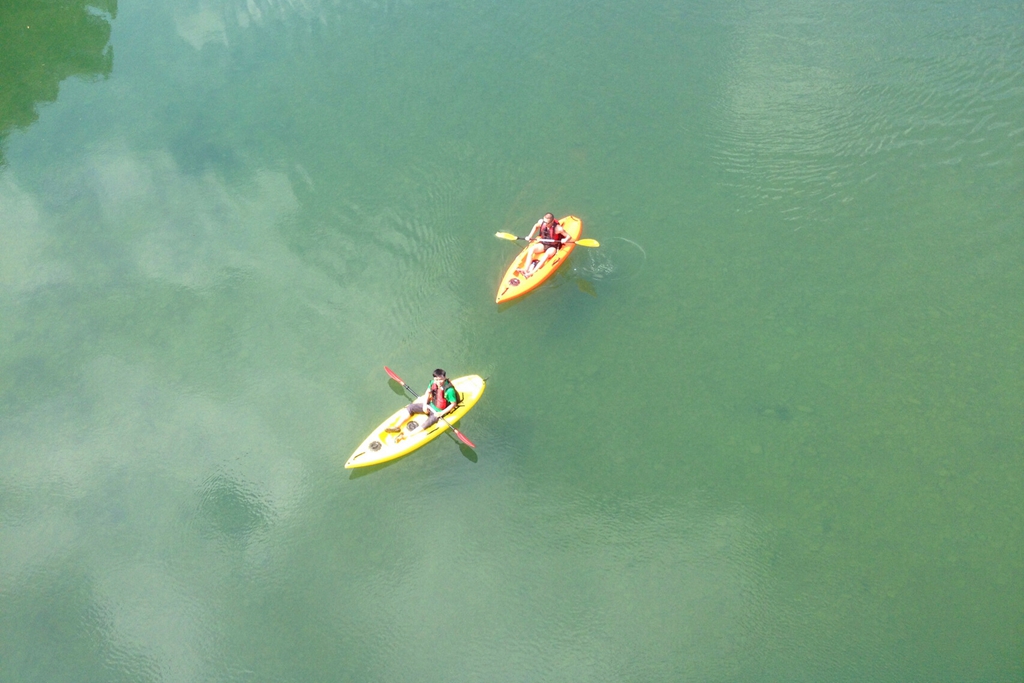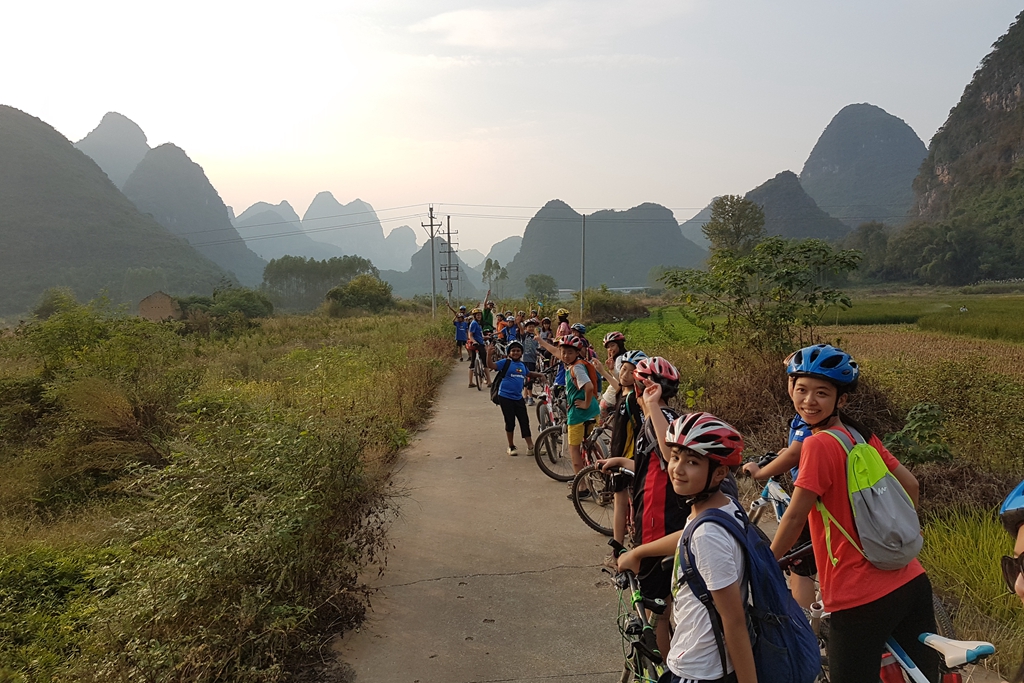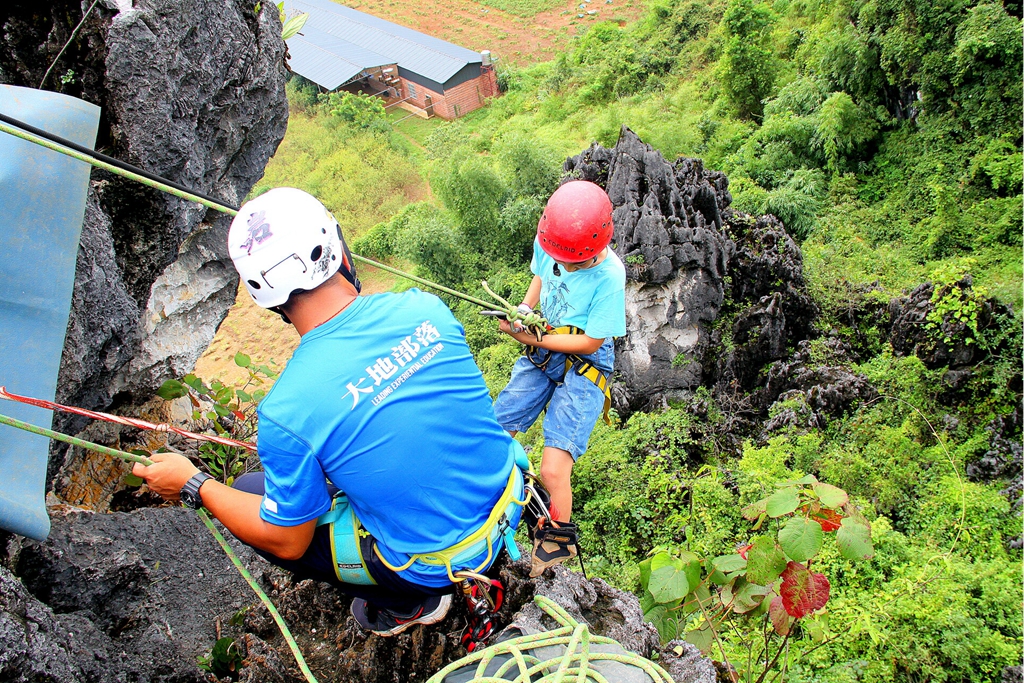Terratribes Articles

Taking learning outside the classroom, a response to Covid-19
by Rob Carmichael (Head of Outdoor Experiential Education UWC Thailand); photos by Terratribes
A turning point ahead
As we sit at home, locked away from direct contact with friends, family and the outdoors. We are in a situation that most of us could never have foreseen. We are forced to find new ways of being and many are pondering how we will get things back to ‘normal’. But as we look to the future and a return to work/school, should we be considering a new way of schooling? Perhaps now is the perfect opportunity for schools to start looking at viable ways in which to initiate more outdoor learning.
A recent statement by Professor Jonathan Van Tam, the Deputy Medical Officer for England, suggests that being outdoors presents a significantly lower chance of passing the illness from one individual to another compared to being indoors. This conceivably could provide an option for a quicker return to school given that having students outside in the open air poses reduced transmission risk than in the confines of the classroom. In truth, however, this is only part of why we should be taking a closer look at how both (OEE) Outdoor Experiential Education & (EOTC) Education Outside the Classroom may be more important than ever.
At the moment, we are dealing with a life behind closed doors, one that is exerting a psychological, emotional and physical toll on many of us, including our students. However there is a way through this for students and teachers alike and there is study after study, that supports this.
The why? Support for taking the class beyond the walls
I’m sure most educators could point to examples of anecdotal evidence that extols the benefits of outdoor experiential based learning, reaffirming that taking students outside the classroom has allowed for ‘real’ connections to be made. This area of research is ripe with studies, and now is the time to apply and test their findings. For example, in a 2010 study from the University of Rochester outdoor learning experiences were shown to positively affect psychological well being. Other research pieces on similar topics show improved well being in the outdoors, the power of green spaces to increase creativity, as well as how time spent in nature improves attention and focus.
Whilst it may not be possible (or indeed practical) for all students in a K-12 school to engage in a 100% outdoor immersed school program, there is no doubt that—especially in early years and primary school—that it is gaining momentum, as we see in the modern forest school, as well as similar outdoor programs being championed at ‘The Green School’ and ‘UWC Thailand’ both of which challenge the traditional schooling approach.
That is, however, not to say that there is not a clear application for Middle Years and Secondary Schools. When older students are asked to step into “the real world” to take theoretical understanding learned from behind a computer or in the classroom, it leads to a student-centric learning experience that not only enhances learning, but also fosters personal and social development.
And if this still isn't enough to make teachers consider adopting an outdoor learning approach there is further evidence that it is also beneficial for educators as well. A study by the University of Swansea reported a variety of outdoor learning benefits in both the child and the teacher and for improving health, wellbeing, education and engagement in school.
As The Head of Outdoor Experiential Education at UWC Thailand, I have seen first hand the positive effects that both a strong EOTC and OEE program can have on students of all ages. Now in the midst of Covid-19, I am thankful to find just how quickly students from my school have adapted. They are making a continued daily effort and finding new and creative ways of completing tasks, whilst also working collaboratively with classmates. Most importantly, they are showing an unwavering streak of resilience in facing this unexpected challenge.
What lies beyond us
So the question remains, how will we choose to move forward into the post Covid-19 world and into what could be a new era for schools? As we stand here looking for solutions in uncertain times, I’m reminded of a quote from Wallace Stegner's ‘Wilderness Letter’, where he looks to the outdoors for hope in uncertain times.
“We simply need that wild country available to us, even if we never do more than drive to its edge and look in. For it can be a means of reassuring ourselves of our sanity as creatures, a part of the geography of hope.”
Robert Carmichael
Head of Outdoor Experiential Education
UWC Thailand



